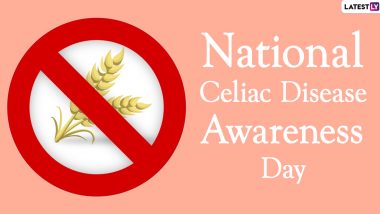September 13 is observed as National Celiac Disease Awareness Day every year. The idea is to encourage and support those with the auto-immune disease. It also plays an important role in spreading awareness. Celiac disease affects 3 million people. And life is difficult for them. The people with celiac disease often avoid gluten because if they do the immune response damages the villi in the small intestine.
History and Significance
The history of National Celiac Disease Awareness Day dates back to the year 2005 whe the United States Senate passed a unanimous resolution supporting Celiac Disease Awareness Day on September 13th. The day also observes the birthday of Dr Samuel Gee who is the physician who first published literature on the nature of the celiac disease and the need for a diet to treat the disease.
Celiac Disease And Symptoms
Celiac disease causes the person having it an immune reaction to eating gluten. Gluten is a protein found in wheat, barley and rye and if it is not taken care if inflammation can be caused that damages the small intestine's lining. Celiac Disease also prevents absorption of some nutrients (malabsorption).
The commin symptom is diarrhoea, bloating, wind, fatigue, low blood count (anaemia) and osteoporosis. However symptoms may differ from people to people. Many people in this case have no symptoms. Adopting a gluten-free diet can help alleviate the symptoms and promote intestinal healing.
Recently, a research found that a common food additive, according to researchers, could cause and trigger Celiac disease, an autoimmune disorder where gluten causes the immune system to attack the gut. They have also called for warnings on food labels until further research is done. If you are a pasta or bread lover, then it might be bad news as a new study has found that consuming heavy amounts of gluten from an early age could lead to gluten intolerance and children might develop celiac disease. The findings of this study were published in the journal -- JAMA -- which suggest that eating higher-than-normal levels of gluten during the first five years of your life is associated with the likelihood of developing celiac disease, a digestive disorder that damages the small intestine.
(The above story first appeared on LatestLY on Sep 13, 2020 07:20 AM IST. For more news and updates on politics, world, sports, entertainment and lifestyle, log on to our website latestly.com).













 Quickly
Quickly


